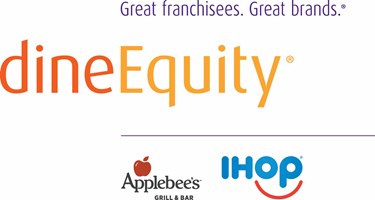Restaurant And Hospitality News – August 21, 2017

By Christine Kern, contributing writer

In news this week, DineEquity is making big changes, including the appointment of a new CEO and a host of restaurant closings; while a new report finds Millennials want to order online but are often discouraged by poorly performing ordering platforms.
DineEquity Announces Big Changes Including Restaurant Closings And New Leadership
In the wake of slumping same-store sales, DineEquity has announced plans to close as many as 160 Applebee’s and IHOP restaurant locations, even as they open dozens of new restaurants in other markets, according to the L.A. Times. Former Choice Hotels executive Stephen Joyce has also been appointed as CEO of DineEquity Inc., as The Nation’s Restaurant News reported. Both moves represent a concerted effort to strengthen the bottom line for the company.
Replacing former CEO Julie Stewart, who resigned in February, Joyce served as CEO of Choice Hotels International Inc. since 2008 and also served on DineEquity’s board of directors since 2012. Joyce will assume leadership on September 12.
“Steve has a long and proven track record of successfully leading global consumer franchised businesses,” Carolina Nahas, lead director of DineEquity, said in a statement.
“While serving as chief executive officer of Choice Hotels, Steve was instrumental in developing a robust performance-based culture, placing an emphasis on agility and innovation and creating momentum and opportunity for the company, franchisees and shareholders. He was also responsible for driving significant growth during one of the most challenging markets in the industry's history.”
The new leadership comes as the company also struggles to make its locations more profitable. Even as the announcement came that as many as 135 Applebee’s and 25 IHOP sites will close, the parent company said that the two chains will open 125 restaurants globally between them in new locations.
The company is facing pressures in the casual-dining segment, which is losing customers to the quick-service restaurants like Panera Bread or Chipotle Mexican Grill, which advertise healthier, upscale food in a convenient and fast manner.
In a recent report, Instinet analyst Mark Kalinowski stated that Applebee’s “remains out-of-favor with casual-dining consumers…Sister concept IHOP may be feeling the effects of DineEquity’s struggles as well.”
The decision to close locations is never done lightly, but interim CEO Richard Dahl explained, “We are investing in the empowerment of our brands by improving overall franchisee financial health, closing underperforming restaurants and enhancing the supply chain.” He also stated that Applebee’s is in the middle of a “transition year” and is “making the necessary investment for overall long-term brand health.” Meanwhile, Dahl said that “IHOP remains on solid ground, despite soft sales this quarter. I am optimistic about the growth in both effective franchise restaurants and system wide sales.”
"Restaurant closures are a normal course of business in the industry and when you have a footprint as large as ours," asserted Amy Mason, senior vice president for global communications and consumer insights. "They are either older locations in a lapsed trade area, where once vibrant retail, residential and traffic characteristics are no longer present; others are closed when they are underperforming with unsustainable economics. Closing these well-below average restaurants can have a positive brand benefit since guests are no longer experiencing a substandard experience."
No list of locations slated to be closed has yet been released.
Millennials Prefer to Order Food Online And Have Little Tolerance For Poor-Performing Systems
A new report from orderTalk, Inc., a leading provider of online ordering systems for restaurants, has found that 79 percent of Millennials (ages 18-34) have ordered takeout via a website or app, which is 29 percent more than the older U.S. adult population (ages 45+). The study also found that Millennials are 26 percent more likely to wish it were easier to access digital ordering than their older counterparts (70 percent vs. 44 percent). Additionally, the results revealed that 69 percent of Millennials have abandoned a digital order, with the chief reason (35 percent) being the poor performance of the website or app they were using.
“While we know that Millennials have grown up with technology and are naturally inclined to use it regularly, the survey results shed light on the level of frustration they feel for lagging restaurant online ordering technology,” said orderTalk CEO Patrick Eldon. “This information is something restaurants shouldn’t ignore when evaluating their current online ordering systems.”
“Online food ordering has become a way of life,” noted Eldon. “However, merely having an online ordering presence isn’t enough today. Restaurants must offer customers a brand-integrated, easy-to-use online ordering platform that works seamlessly to meet a discerning consumer demand.”
The research report is the result of a 2017 online survey conducted on behalf of orderTalk by Harris Poll among 2,246 U.S adults.
